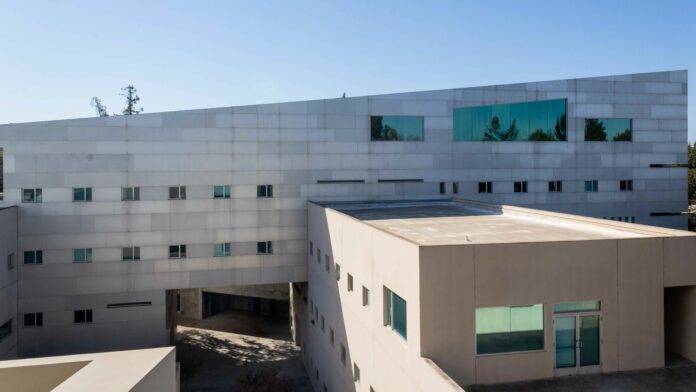New efforts emphasize UC Davis’ commitment to interdisciplinary research
The Office of Research spearheaded four new special research programs through the Inter and Multidisciplinary Program to Accelerate Convergence and Transition (IMPACT) Centers program. This initiative is “designed to promote new, sustainable inter- and multidisciplinary research activity at UC Davis that responds to society’s greatest challenges and needs,” according to UC Davis’ Administered Programs website.
After receiving 64 proposals written by 750 individual faculty members, four ideas were selected to receive $1 million over three years: the Data Science Center, the Gene Therapy Center, the Global Migration Center and the Perinatal Origins of Disparities Center.
“There is a lot of emphasis now on multidisciplinary research to address global challenges as well as the big societal problems,” said Dr. Prasant Mohapatra, the vice chancellor for research, at the launch event on Oct. 23.
According to the UC Davis website, “scientific merit, plans for self-sustainability and potential for impact” were some factors taken into consideration during the selection process.
“My expectations […] are very high,” Mohapatra said. “I want all the centers to be very successful in making an impact on the world. Each center by the end of the year […] should be able to say, […] ‘During the year we did research X, Y and Z which makes impacts in such a way.’”
Dr. Thomas Strohmer, a professor of mathematics of data science, is directing the Center for Data Science and Artificial Intelligence Research, also known as CeDAR.
CeDAR’s goal is to “effectively respond to […] grand challenges of our society by advancing data science and AI foundations and applications in a transdisciplinary effort,” according to the PowerPoint presented at the launch event.
“This is just the beginning,” Strohmer said. “We want to be really strong in philanthropy. We want to reach out to a lot of industries across the different sectors.”
CeDAR is applying data science and artificial intelligence research to resolve fundamental problems in foundations, healthcare, agriculture and environment, veterinary medicine and biology and biomedical engineering.
Dr. Jan Nolta, professor of cell biology and anatomy, is in charge of the Gene Therapy Center.
“A lot of this started with the stem cell program at UC Davis,” said Joseph Anderson, the assistant director of the Gene Therapy Center. “It started because we can use stem cells and genetically modify stem cells so we can develop these therapies as potential one time treatments.”
Currently, the center is working towards developing hematopoietic stem cell (HSC) gene therapies for various conditions, including leukemia, lymphoma, Tay-Sachs disease and sickle cell disease.
The Global Migration Center, directed by Economics Professor Giovanni Peri, grapples with the causes and consequences of migration, policy concerning migrants and cross-disciplinary conversation regarding the political and social spheres of immigration.
“Migration, how to deal with [migration], immigration, refugees and undocumented migrants are a huge theme of debate,” Peri said at the launch event. “Politics are made and unmade around this. This is an important thing.”
The Migration Research Cluster, the “Comparative Studies,” initiative and the “Humanizing Deportations” project, coalesced to form the Global Migration Center. Twenty-five faculty members from 13 departments across five colleges, along with undergraduate and graduate students have united to tackle this topic.
The Perinatal Origins of Disparities Center, or POD Center, is led by Dr. Leigh Ann Simmons, a professor and chair of the department of human ecology, and Dr. Janine LaSalle, a professor of medical microbiology and immunology.
“We have four main goals,” Simmons said at the launch event. “They are focused on really leveraging innovation and technology from the basic sciences to clinical and community sciences.”
The POD Center’s research is centralized across three overarching core research threads including biobehavioral research, epidemiological research and research in clinical and community-based interventions.
“Our research is focusing on pregnant women, infants, on that early period and the families that are raising these young kids,” Simmons said. “We’re focusing specifically on populations that typically experience disparities in chronic diseases.”
According to the UC Davis website, the four centers will have the opportunity to become IMPACT Centers by the end of their third year of establishment, if they demonstrate “strong research progress.”
“I hope five years from now, if I do a Google search on any of the words that you see [on the screen], your center should come as the top one,” Mohapatra said as he addressed the directors in the crowd.
Written by: Aarya Gupta — campus@theaggie.org




Hey, funding going to something that doesn’t end in “studies.” Maybe that means they’ll actually be able to produce something worth a damn instead of a bunch of shallow activism masquerading as “academics.”